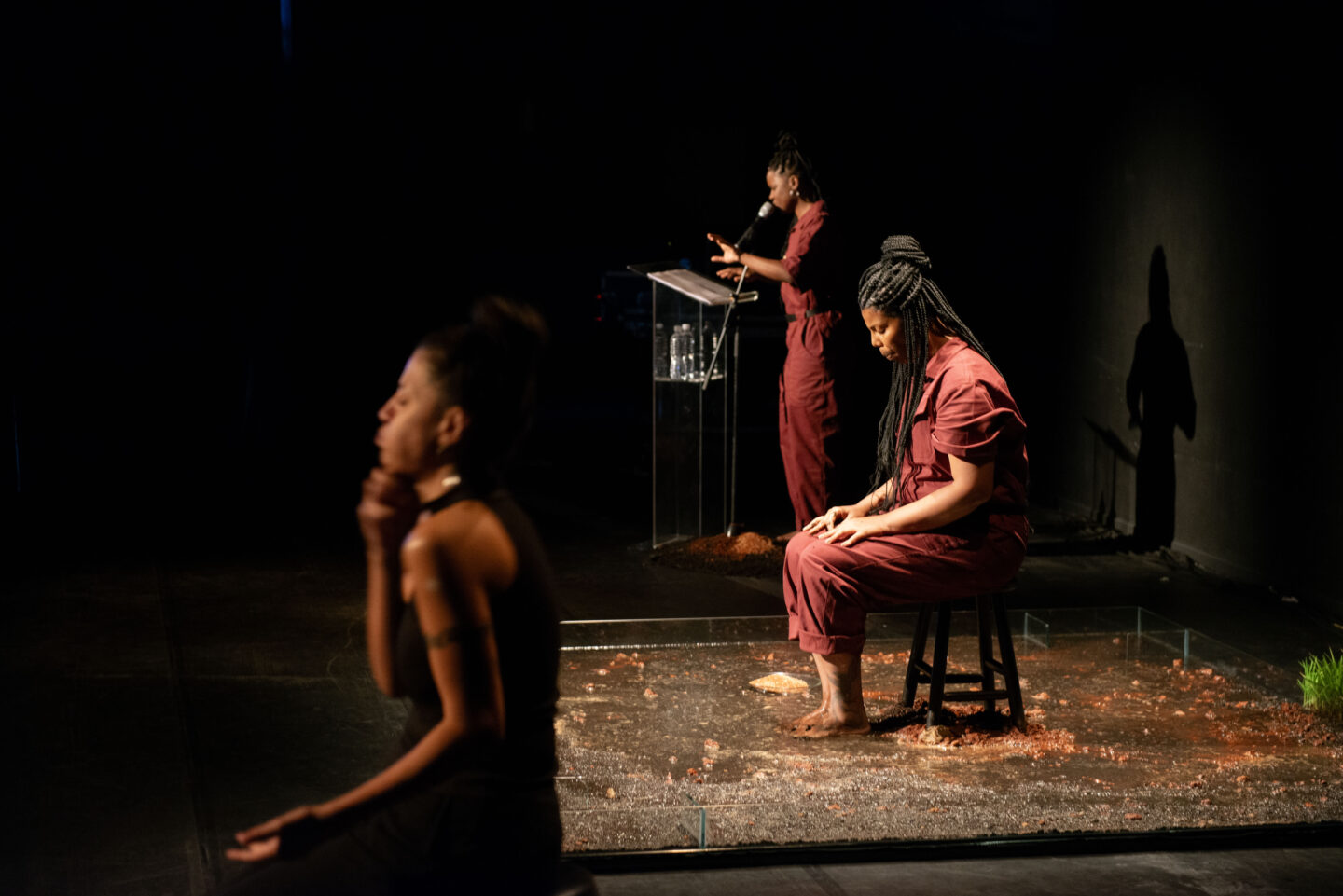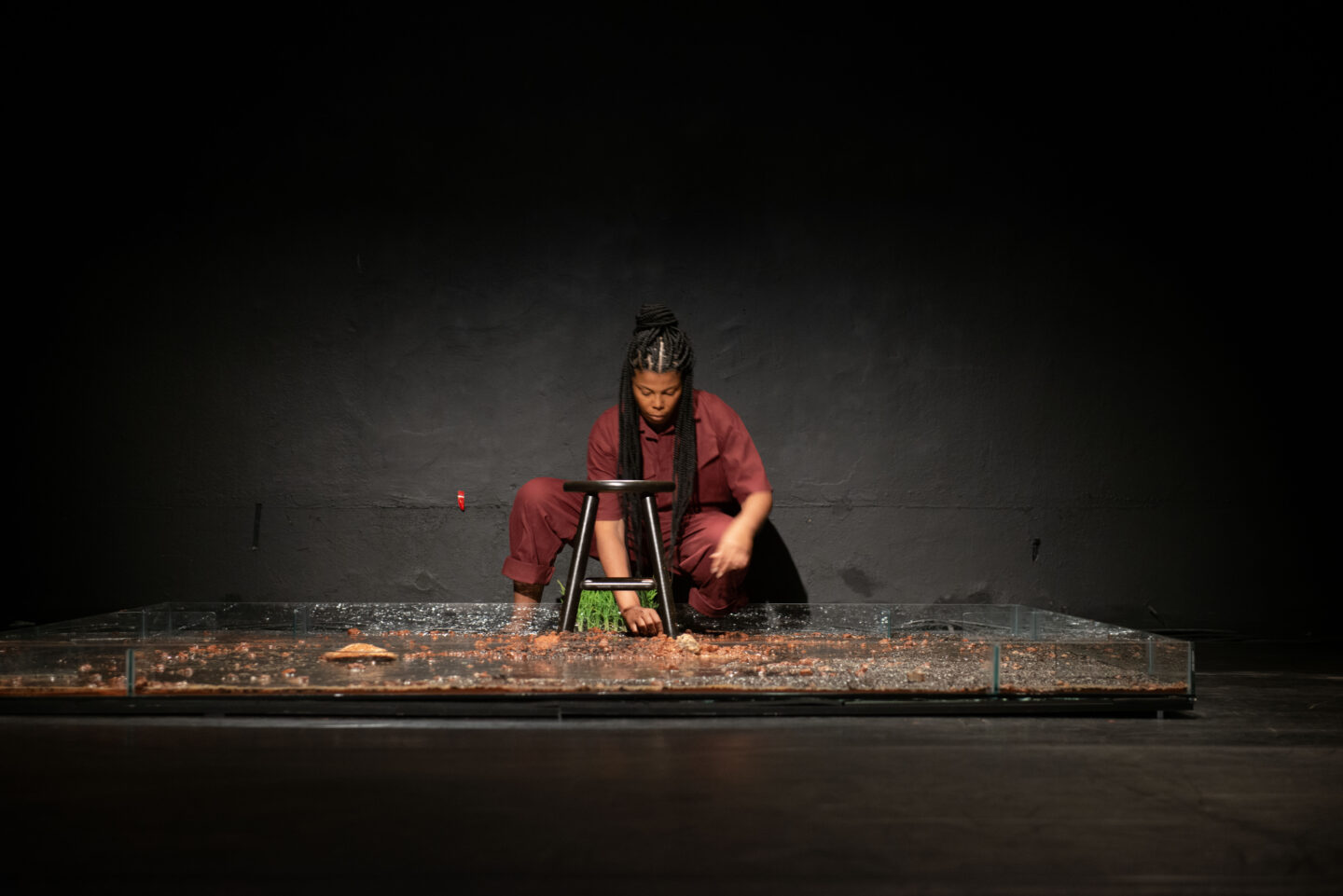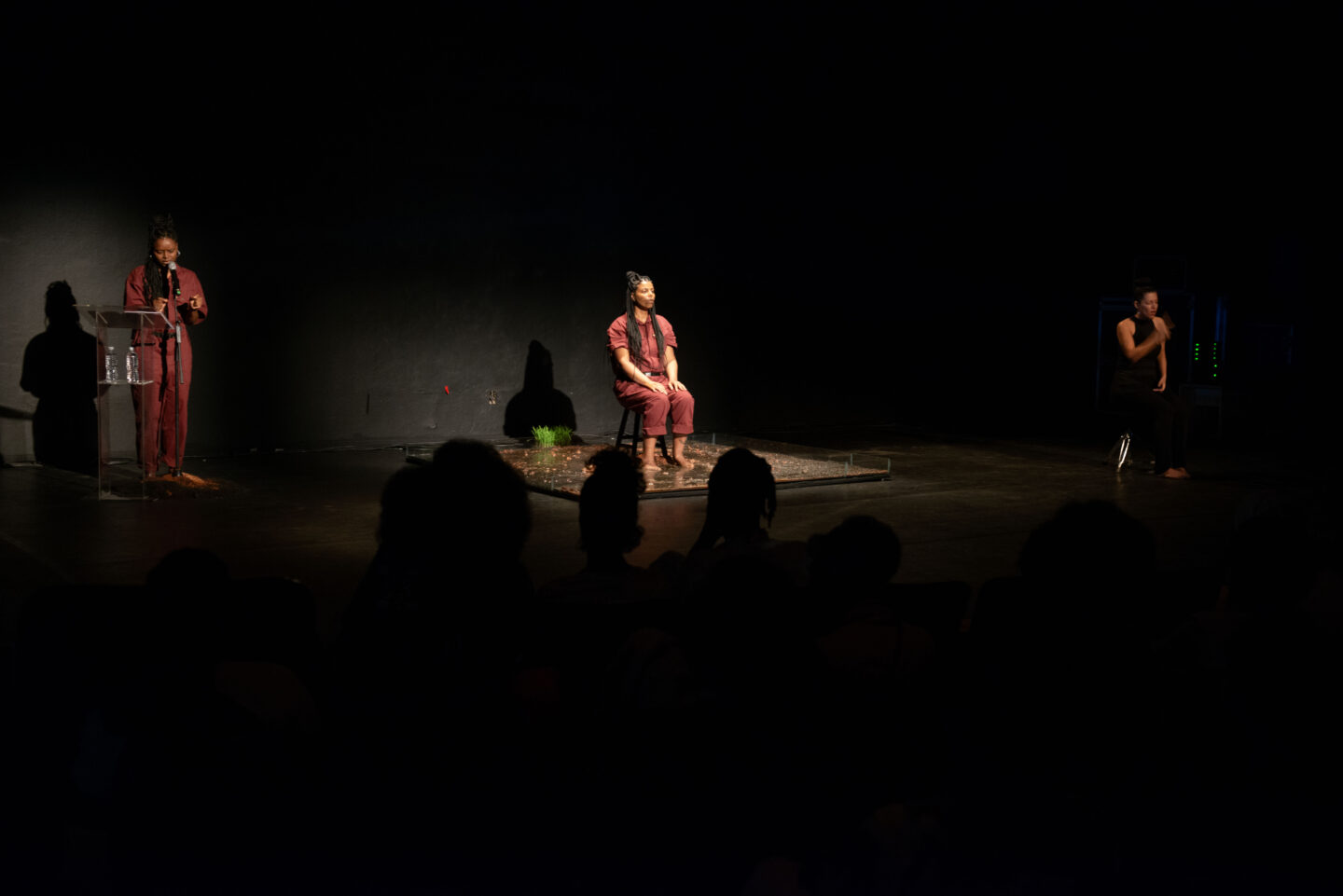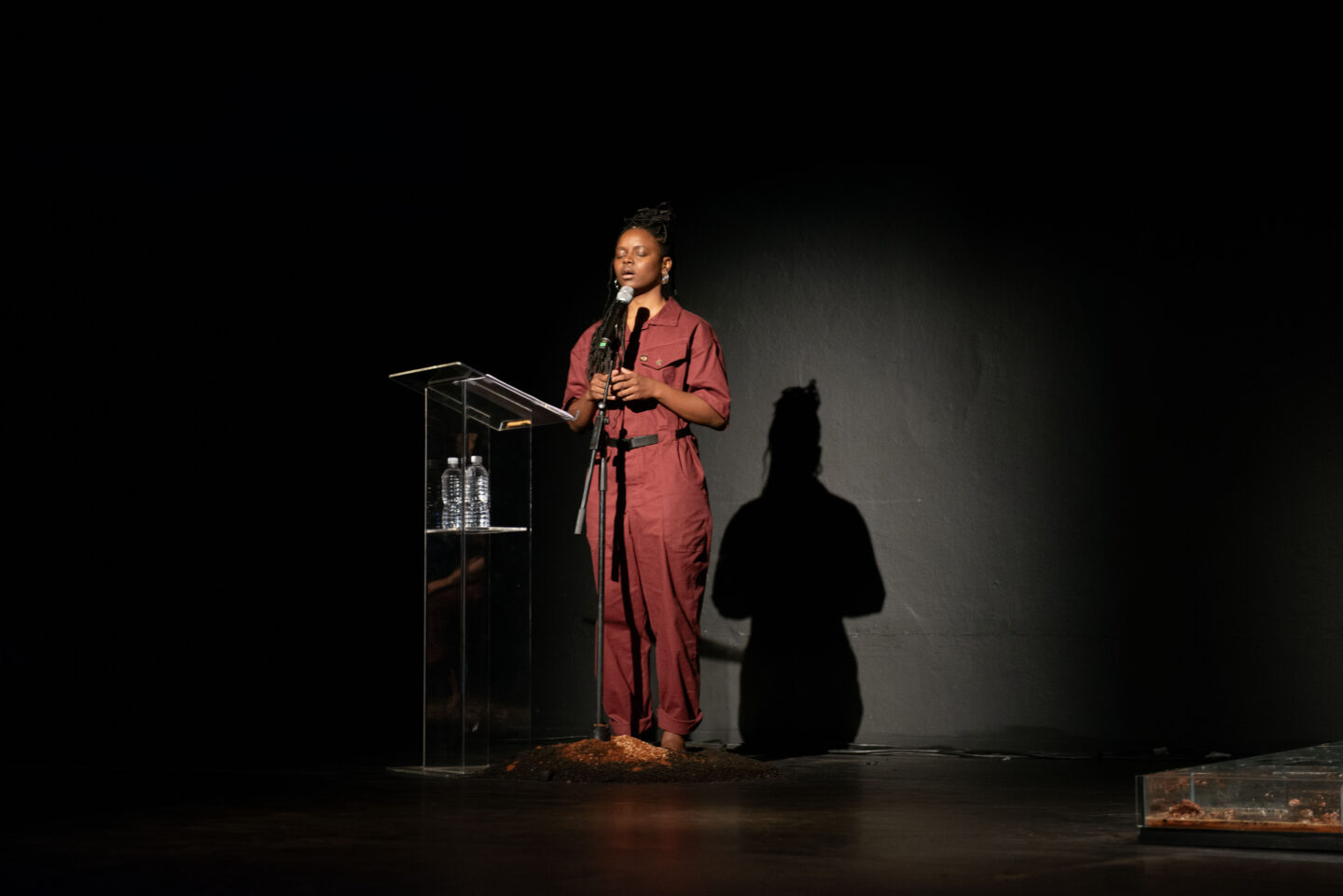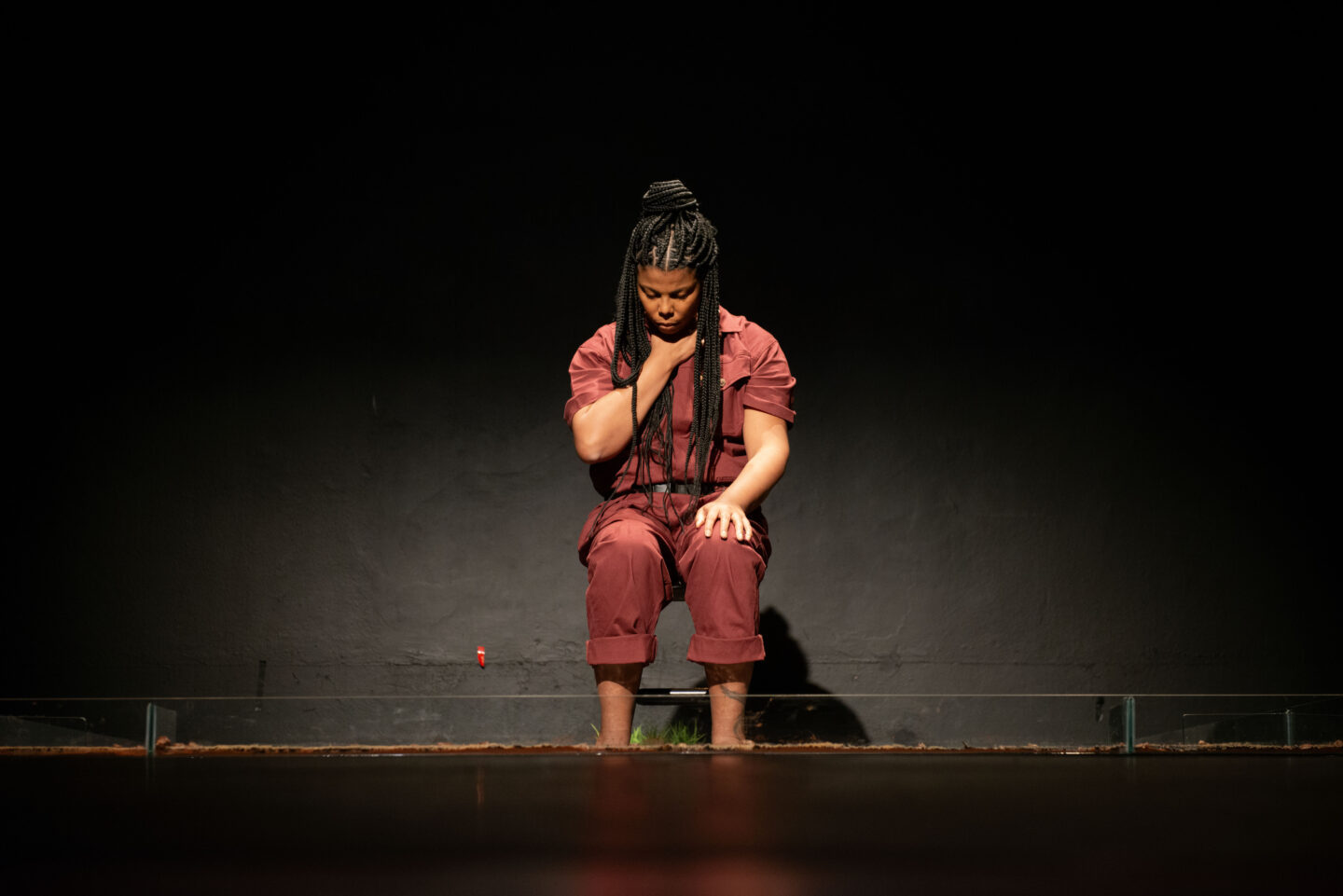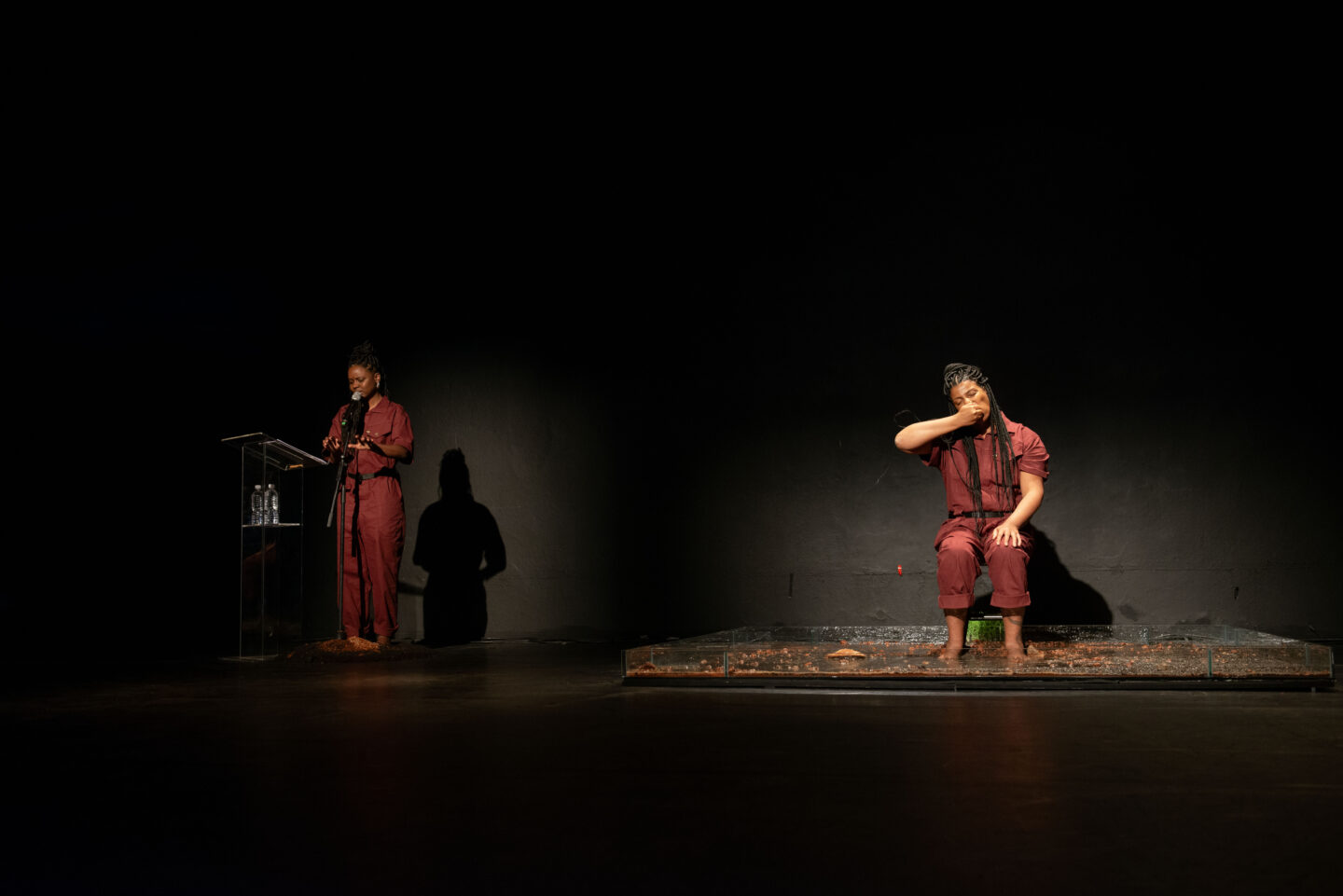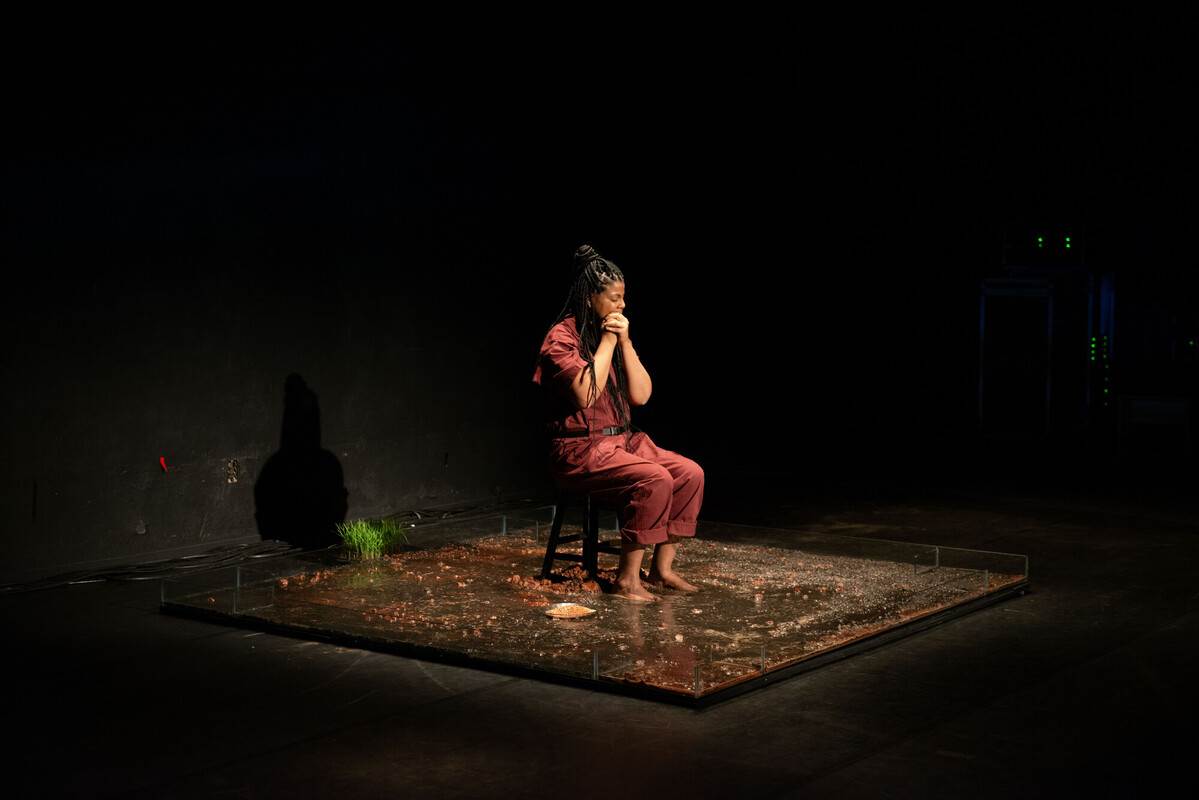
Rubiane Maia
Insistently throwing a series of stones towards the ocean, investigating the body as a receptacle of the force of winds, performing displacements in synergy with the mineral kingdoms, stretching the time of writing in relation to the duration of plants, breathing memories from the sonic capacity to access immemorial times, sanding wood to excavate texts present in the skin itself, are some (among the many) gestures that lend structure to the conceptual and transdisciplinary texture of Rubiane Maia.
What is at play in the situations proposed by the artist, whose work is guided by a hybrid between performance, images, and writing, is always the construction of a state of perception that allows her own body (and the body of those affected by it) the possibility of widening and transmuting what is inscribed in it over time.
A body that listens, feeds, and multiplies the frequencies, voices, and cries that precede us. If each one of us is the condensation of lived history from birth and before, when a memory [or, a set of memories], is made actual through a performative action, it ceases to be a memory or a ghost to become a collective perception, a constellation.¹
In this sense, the body, in the contexts evoked by Maia, extrapolates (or even refuses) the biological-historical-Western conceptions attributed to it, becoming a set of forces in a state of differentiation capable of mobilizing new landscapes, exits, and health. Always considering the landscape and the environment (especially the non-human one) as co-creators of her works, the artist [re]affirms her commitment to life in a game that involves both an exercise of critical (and clinical) fabulation and a sprouting of what we might call care. This care, however, rises, expands towards a collective state, carrying in itself a network of stories, relationships, and collective and individual perceptions.
In Book-Performance, a project under development and presented at the 35th Bienal de São Paulo, Rubiane Maia organizes a series of actions, conceived in response to autobiographical texts particularly influenced by traumatic transgenerational memories linked to gender and race issues. The artist elaborates through gesture and collaboration with other performers (always intersected by issues common to her history inscribed by migration, motherhood, and diasporic thinking) a text-body methodology that aims to “metabolize complex or indigestible memories in small doses of healing and freedom.”²
tarcisio almeida
translated from Portuguese by philip somervell
1. Notes on the artist’s practice. See more at: www.rubianemaia.com/
². Ibid.
- Vista da performance A língua sempre se dobra diante do inquestionável ou maldito – livro-performance capítulo VI, de Rubiane Maia na 35ª Bienal de São Paulo – coreografias do impossível © Levi Fanan / Fundação Bienal de São Paulo
- Vista da performance A língua sempre se dobra diante do inquestionável ou maldito – livro-performance capítulo VI, de Rubiane Maia na 35ª Bienal de São Paulo – coreografias do impossível © Levi Fanan / Fundação Bienal de São Paulo
- Vista da performance A língua sempre se dobra diante do inquestionável ou maldito – livro-performance capítulo VI, de Rubiane Maia na 35ª Bienal de São Paulo – coreografias do impossível © Levi Fanan / Fundação Bienal de São Paulo
- Vista da performance A língua sempre se dobra diante do inquestionável ou maldito – livro-performance capítulo VI, de Rubiane Maia na 35ª Bienal de São Paulo – coreografias do impossível © Levi Fanan / Fundação Bienal de São Paulo
- Vista da performance A língua sempre se dobra diante do inquestionável ou maldito – livro-performance capítulo VI, de Rubiane Maia na 35ª Bienal de São Paulo – coreografias do impossível © Levi Fanan / Fundação Bienal de São Paulo
- Vista da performance A língua sempre se dobra diante do inquestionável ou maldito – livro-performance capítulo VI, de Rubiane Maia na 35ª Bienal de São Paulo – coreografias do impossível © Levi Fanan / Fundação Bienal de São Paulo
Rubiane Maia (Caratinga, MG, 1979. Lives and works in Vitória, ES and Folkestone, UK) combines performance, video, installations, and writing in her artistic practice. Furthermore, Maia works with sketching, collage and painting. She has participated in the workshop Cleaning the House from Marina Abramovic and in the exhibition Terra comunal – Marina Abramovic + MAI at the SESC Pompeia (São Paulo, Brazil) with the performance O jardim (2015). She is a member of the international collective of artists Speculative Landscapes. Since 2018, Maia has been organizing actions in chapters that make up a ‘Performance-Book’ based on autobiographical texts that address situations of racism and misogyny.

 Português
Português